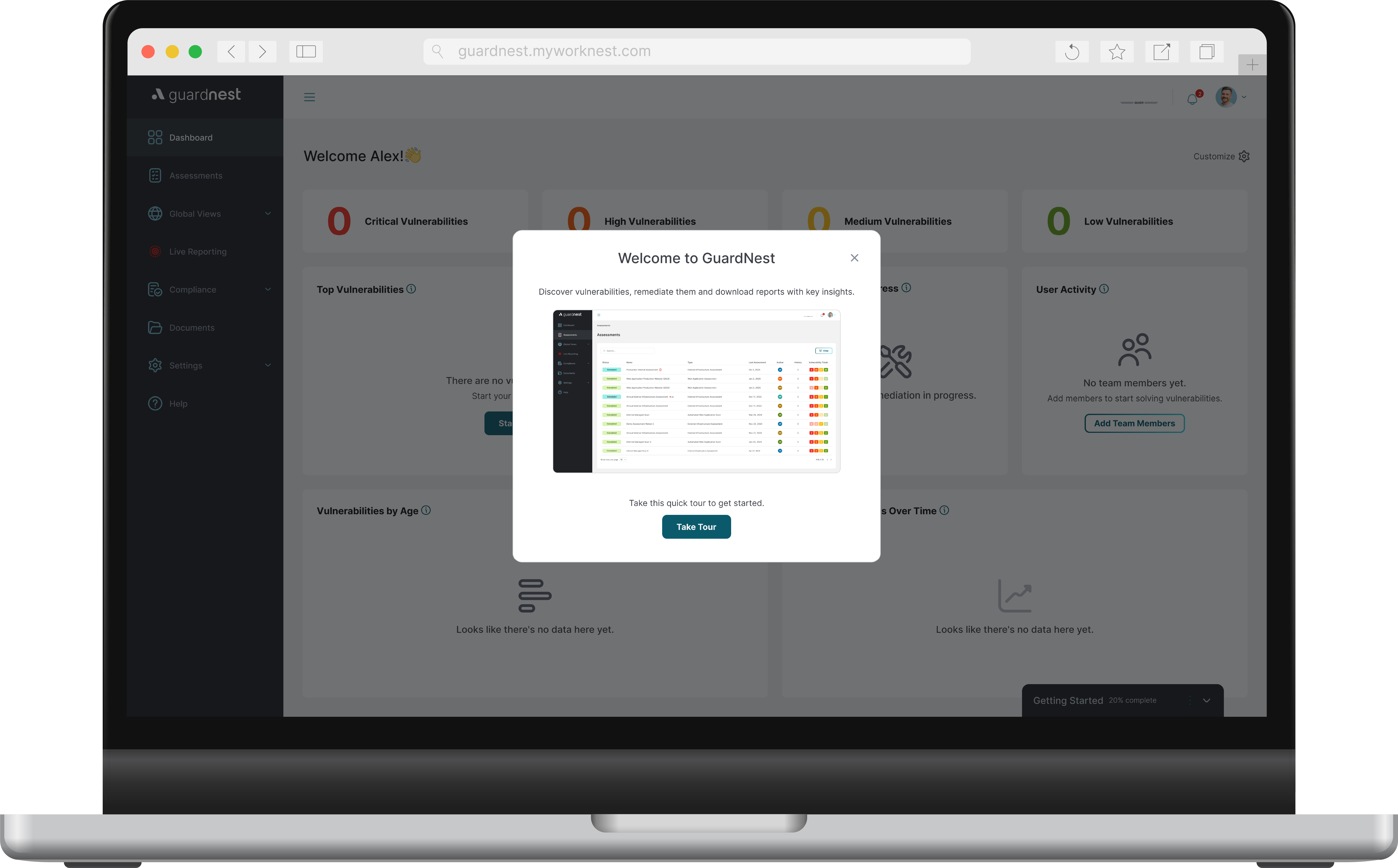5 Proven Benefits of Managed Cloud Security


What is Managed Cloud Security?
Managed Cloud Security is an IT model that involves outsourcing the monitoring and security operations of cloud-based infrastructure to specialised third-party providers. This enables internal IT teams to concentrate on proactive initiatives rather than being bogged down by day-to-day security management, making it a strategic choice for organisations of all sizes.
This approach integrates automation to enhance data breach protection, providing real-time threat alerts and ensuring regulatory compliance. Automated systems can swiftly analyse vast amounts of data, allowing for immediate responses to emerging threats and maintaining adherence to ever-evolving compliance requirements.
As cyber threats continue to persist and escalate, the demand for managed cloud security solutions is growing rapidly. Organisations transitioning to cloud services find that partnering with external security experts not only enhances their defenses but also frees up resources and expertise for critical business projects. By leveraging outsourcing in this area, companies can better protect their assets while strategically navigating the complexities of today’s digital landscape.
The Future of Managed Cloud Security
As organisations increasingly migrate their operations to the cloud, the need for robust security measures has never been more critical. The future of managed cloud security is poised to evolve rapidly, driven by advancements in technology, shifts in regulatory landscapes, and a growing awareness of cyber threats. With the rise of artificial intelligence and machine learning, security solutions will become more proactive, enabling real-time threat detection and response. Additionally, as businesses continue to expand their digital footprints, the demand for comprehensive cloud security services that integrate seamlessly with existing infrastructures will rise.
This shift presents both challenges and opportunities for organisations as they seek to protect sensitive data while maintaining performance and compliance. In this context, it is essential to explore the emerging trends, innovative solutions, and strategic approaches that will define the landscape of managed cloud security in the years to come.

Top 5 Benefits of Cloud Managed Services
Cost Savings
Cloud managed services significantly reduce operational costs by eliminating the need for hefty investments in hardware, software, and maintenance. Instead, companies pay a predictable subscription fee tailored to their usage.
Flexibility in Service Plans
These services offer customisable plans that adapt to your business needs. Whether you’re scaling up or down, you can easily modify your services without incurring additional costs or delays.
Dedicated Support
Round-the-clock dedicated support is a hallmark of cloud managed services. Your business benefits from immediate assistance, ensuring minimal downtime and a seamless operational flow.
Outsourcing Cloud Maintenance
Partnering with a trusted provider for cloud management means you can offload complex maintenance tasks. This frees your team to focus on core business activities, enhancing overall productivity.
Elimination of In-House Costs
Outsourcing cloud services eliminates the need for an expensive in-house team, reducing payroll expenses and training costs. You gain access to expert resources without the overhead.
The Cloud Increases Security Complexity
The transition to cloud environments significantly heightens security complexity for organisations. As cloud applications are rapidly deployed, vulnerabilities often emerge, making it challenging to detect and remediate threats swiftly. This speed does not allow for thorough security assessments, exposing organisations to potential cyberthreats.
Moreover, the reliance on multiple security tools can hinder comprehensive visibility across cloud resources. Organisations may struggle to integrate these tools effectively, leading to gaps in threat detection and response capabilities. This fragmented approach complicates the overall cloud security posture and increases the likelihood of overlooking critical issues.
Under the shared responsibility model, both cloud providers and clients must manage security for deployed workloads. Cloud providers offer a secure infrastructure, yet clients are responsible for securing their applications and data. This division of responsibilities necessitates clear communication and collaboration to mitigate risks effectively, as both parties must work in tandem to protect against vulnerabilities and cyber threats. Ultimately, navigating the complexities of cloud security requires organisations to reassess their strategies and enhance their security frameworks.
Challenges of Cloud Security Managed Services
Cloud security managed services present several challenges that organisations must consider. One significant limitation is the difficulty in offering comprehensive protection for a single environment. Many businesses operate across multiple cloud platforms, making it hard for managed service providers to deliver a unified security solution tailored to each unique environment.
Additionally, security integration poses complexity as organisations strive to merge existing security resources with the managed services. This integration can lead to gaps in protection if not executed properly, increasing the potential for vulnerabilities.
Another concern is the inherent risks of engaging third-party providers. While managed services can enhance security, relying on external entities exposes organisations to additional threats and compliance issues, making it crucial to evaluate provider reliability thoroughly.
Finally, cost concerns arise as some organisations find these managed services to be more expensive than managing security internally. This can deter businesses from outsourcing security functions, driving them to weigh the cost-effectiveness of in-house solutions against the potential advantages of specialised managed services.
Protecting Your IT Infrastructure
Protecting your IT infrastructure is a proactive endeavor that requires continuous scanning for vulnerabilities and the implementation of effective security measures. Regular risk assessments help identify potential threats and weaknesses, allowing organisations to prioritise actions to mitigate risks. Coupled with cyber threat protection, these strategies create a fortified defense against evolving threats.
A layered security approach is crucial in this context. It involves integrating multiple security measures to create a robust defense system. This includes regular updates and monitoring performed by cloud managed service providers, ensuring that security protocols remain current and compliant with industry regulations.
Ensuring Governance and Compliance
A cloud management platform significantly enhances governance and compliance by providing businesses with the tools to effectively monitor user activities and manage IT assets. By tracking access and usage patterns, organisations can ensure that only authorised personnel interact with sensitive data, thus upholding security protocols.
Staying updated on regulatory requirements is crucial for avoiding legal pitfalls and maintaining operational integrity. Compliance management tools integrated within cloud solutions streamline the monitoring and reporting process, allowing businesses to generate real-time compliance reports and identify any potential gaps swiftly.
Moreover, cooperation with cloud service providers is essential to ensure adherence to industry standards and best practices. This partnership allows organisations to leverage the providers' expertise in compliance, helping to mitigate risks associated with data breaches and non-compliance penalties.
Choosing Outsourced Cloud Security
When choosing outsourced cloud security, organisations must consider the differences between built-in security controls offered by cloud providers and the comprehensive services from managed security service providers (MSSPs). While cloud providers often include basic security features, these may not address the complexity and unique demands of hybrid and multi-cloud environments.
MSSPs deliver a wider range of security services, including advanced threat detection, incident response, and continuous monitoring, tailored to help organizations navigate the complexities of multiple cloud ecosystems. This expertise is crucial in ensuring robust cloud security that aligns with specific operational needs.
Furthermore, organisations should prioritise integration capabilities with existing systems and tools. This seamless integration enhances visibility and control across diverse environments. It’s also vital to select a provider with a proven track record and strong industry reputation to ensure reliability and trust.
Conclusion
In conclusion, the adoption of managed Cloud Security Services presents a strategic advantage for organisations seeking to safeguard their IT infrastructure and comply with regulatory standards. While challenges such as integration complexity, reliance on third-party providers, and cost considerations exist, the benefits often outweigh these concerns.
.png)









.svg)








.webp)


